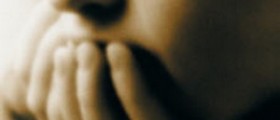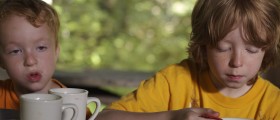
Enuresis is a term used to describe the inability to control the urination. It does not apply on infants who are not yet expected to be able to control urination and bowel movements and it is instead applied to children who are old enough to control it and on the adults as well.
Even though enuresis involves any kind of inability to control the urination, it is mostly used to describe bedwetting.
Bedwetting or nocturnal enuresis is involuntary urination during sleep at the age when the urination control has already been established. Even though adults may suffer from it too, bedwetting is characteristic for children.
Causes of enuresis
In many children, bedwetting or nocturnal enuresis is only a matter of temporary developmental delay, but it can also result from an underlying physical or emotional issue.
The most common causes of enuresis are genetics and neurological or developmental delay, and other, less common ones are alcoholism, attention deficit hyperactivity disorder or ADHD, caffeine and alcohol consumption, diabetes, constipation, problems regarding anti-diuretic hormone, infections and certain anatomical abnormalities regarding the urinary tract. Psychological issues, such as stress, emotional trauma due to death in family or divorce, sexual abuse, bullying and such are also possible causes of bedwetting.
Treatment for enuresis
Enuresis has a significant impact on the self-esteem of a bed-wetter. It may also cause a lot of social embarrassment, and in cases where the family does not handle well the problem, additional psychological trauma.
Treatment for enuresis must first involve diagnostic steps to rule out diseases and infections. In severe cases or prolonged bedwetting, many doctors want to investigate the possibility of severe emotional trauma or abuse, which is done with the help of a therapist or a psychiatrist.
Almost all children stop bedwetting without any treatment at all, which is why most doctors recommend waiting. Treatment options may include certain training regimes, such as controlled urination, bedwetting alarms, diapers or underwear that absorbs fluids, as well as medications such as tricyclic antidepressants and desmopressin.
It is essential for the parents of a bed-wetter to realize that punishment is never a good solution for this problem. Not only it is inefficient, but it can also aggravate the problem. Even though enuresis is very stressful not only for the child but for the parents as well, it is important to be very patient, understanding and supportive. It is also recommended to explain to the child that there is no shame in bedwetting, which will prevent additional stress.









-Causes,-Symptoms,-Diagnosis-And-Treatment_f_280x120.jpg)







Your thoughts on this
Loading...